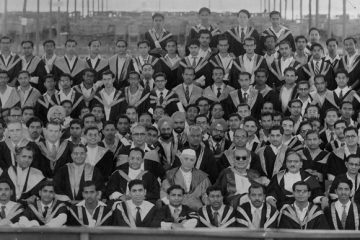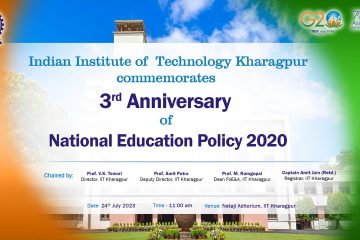
People are often pushed for clinical tests that are expensive, time-consuming, uncomfortable and in plain sight even unnecessary. When it comes to life-threatening diseases such as cancer, where no one wants to take chances, there could be a higher risk of being mired in expensive, worrisome tests.
An ideal situation would be one where the advanced tests are recommended only for those who have a fair degree of certainty of carrying the disease. Even better if it can be assured that the preliminary screening for cancer is not only error free but also takes into account the patient’s preferences.
A team of researchers at IIT Kharagpur have done precisely that. They have devised an algorithm for detecting oesophageal cancer that accurately detects the probable cancer suspects. Not merely that, the algorithm also selects what combination of tests an individual patient should go through for this detection depending on the patient’s preference on costs and discomfort.
The outcome of the research was published in a recent Elsevier issue on ‘Artificial Intelligence in Medicine’. The research was conducted by Dr Asis Roy, Prof. Sourangshu Bhattacharya (Department of Computer Science and Engineering and Prof. Kalyan Guin (former faculty at the Vinod Gupta School of Management).
Customized or personalized medical services are becoming increasingly popular the world over in the prevention and treatment of diseases because it considers the patient’s individual genetics, clinical condition, environment and lifestyle in order to be the most effective. The researchers of IIT Kharagpur take this a notch above by proposing personalization of tests, and thus a personalized diagnosis system.
The methodology of customized clinical tests for oesophageal cancer was tested on the electronic medical records (EMRs) collected for more than 3,000 patients as part of a project carried out by a reputed hospital in Mumbai, India. The algorithm was found to yield an accuracy of 99.18% and sensitivity 100% using only demographic, lifestyle, patient history, and basic clinical tests. Among the patient details taken into account are weight, height, average income, lifestyle concerns like tobacco and alcohol consumption and medical history such as the incidence of cancer in the family.
EMR is often used by researchers to reveal hidden information through data mining. In fact, EMR has been used to detect heart disease, breast cancer and some diseases although not for oesophageal cancer. The researchers have delineated classifiers trained from EMR and the clinical tests in order to predict a new suspect [Among the 15 tests suggested by the medical practitioner for the screening are pressure, asthma, difficulty in swallowing, alteration of voice, Reflux Gastritis and Haematemesis. The tests suggested for each individual change with the inputs for comfort and costs.]
“The key idea is to design classifiers with near zero false normal rates, possibly at the cost of higher false abnormal,” says Prof Bhattacharya.
This means that there is a chance that cases detected to be positive for oesophageal cancer by the algorithm may turn out to be false after advanced tests, but there is no way that any patient who has oesophageal cancer will go undetected.
This method of screening can be adopted where a suspect is diagnosed initially by any health officer or clinician before approaching any doctor. The doctor can play his role once the system recommends a visit to a medical practitioner after analysing the captured data.
Dr Roy explains, “In third world countries like India, where a lot of the doctors’ time and precious resources are wasted, this model of treatment will reduce the waste since patients will not have to do all tests and will not have to go for unnecessary ones.” This will be particularly beneficial for rural areas, where hospitals are distant and there is acute shortage of doctors.
Besides, Dr Roy says, this model can be used for the detection of many other diseases by selecting appropriate features in EMR data and clinical tests. With minimized costs of healthcare, “more patients can afford to have the treatment either by bearing the cost on their own or by the insurance provider with an assumption that the premium will be low (the cost of overall treatment will be lower as compared to existing procedure).”
Additionally, says Dr Roy, healthcare providers can build a revolutionary new system for medical care by combining the data from diagnostic tests and medical history of patients to deliver enhanced value to patients. The research team expects health care service providers to implement this system as a soft sensor in preventing the disease by keeping the data in a cloud platform and alerting the person using mobile technology. “Undoubtedly the whole system can serve a large population by detecting a disease early with low cost and by giving satisfaction providing a freedom to choose the diagnostic tests,” says Dr Roy.
Graphics : Suman Sutradhar




Great job!! Thanks you all for investing time for this noble cause and dreadful disease. This will definitely help special class of people to save huge cost spent on plethora of medical. What is way forward plan of bringing to the market ??